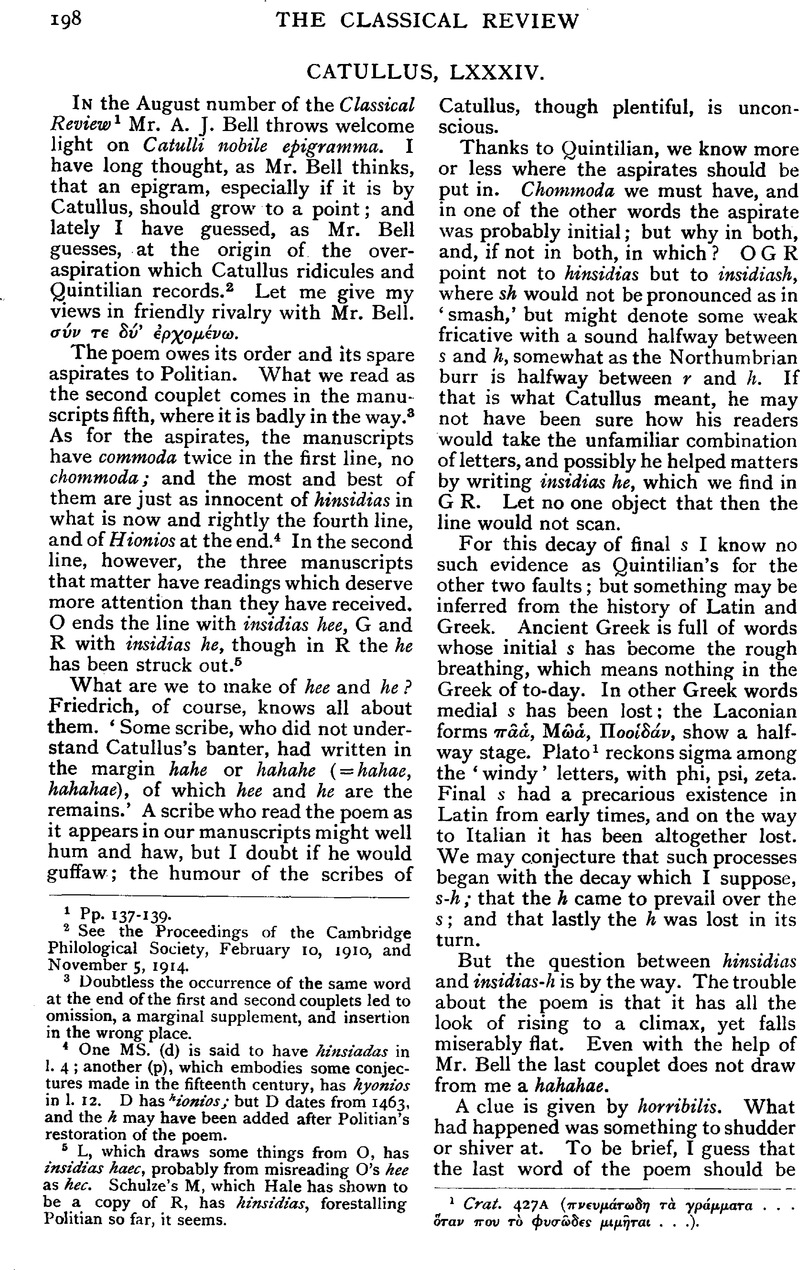Article contents
Catullus, LXXXIV
Published online by Cambridge University Press: 27 October 2009
Abstract

- Type
- Original Contributions
- Information
- Copyright
- Copyright © The Classical Association 1915
References
page 198 note 1 Pp. 137–139.
page 198 note 2 See the Proceedings of the Cambridge Philological Society, February 10, 1910, and November 5, 1914.
page 198 note 3 Doubtless the occurrence of the same word at the end of the first and second couplets led to omission, a marginal supplement, and insertion in the wrong place.
page 198 note 4 One MS. (d) is said to have hinsiadas in l. 4 ; another (p), which embodies some conjectures made in the fifteenth century, has hyonios in l. 12. D has honios; but D dates from 1463, and the h may have been added after Politian's restoration of the poem.
page 198 note 5 L, which draws some things from O, has insidias haec, probably from misreading O's hee as hec. Schulze's M, which Hale has shown to be a copy of R, has hinsidias, forestalling Politian so far, it seems.
page 198 note 1 Crat. 427A (![]() ).
).
page 199 note 1 To the British Academy on July 22, 1908; to the Cambridge Philological Society on May 14, 1914 (Proceedings, 1914, p. 6). Professor Conway has very kindly read my paper in manuscript, and has bettered it in more than one place.
page 199 note 2 See particularly B. Schmidt's preface to his text. Schmidt collects evidence from Cisalpine inscriptions for the names of several of the poet's friends and foes ; and I see that two of Professor Conway's epitaphs from Este have the names iiuva.n.tsah and iuva.n.tiioh, which recall the Juventius of Catullus.
- 2
- Cited by




